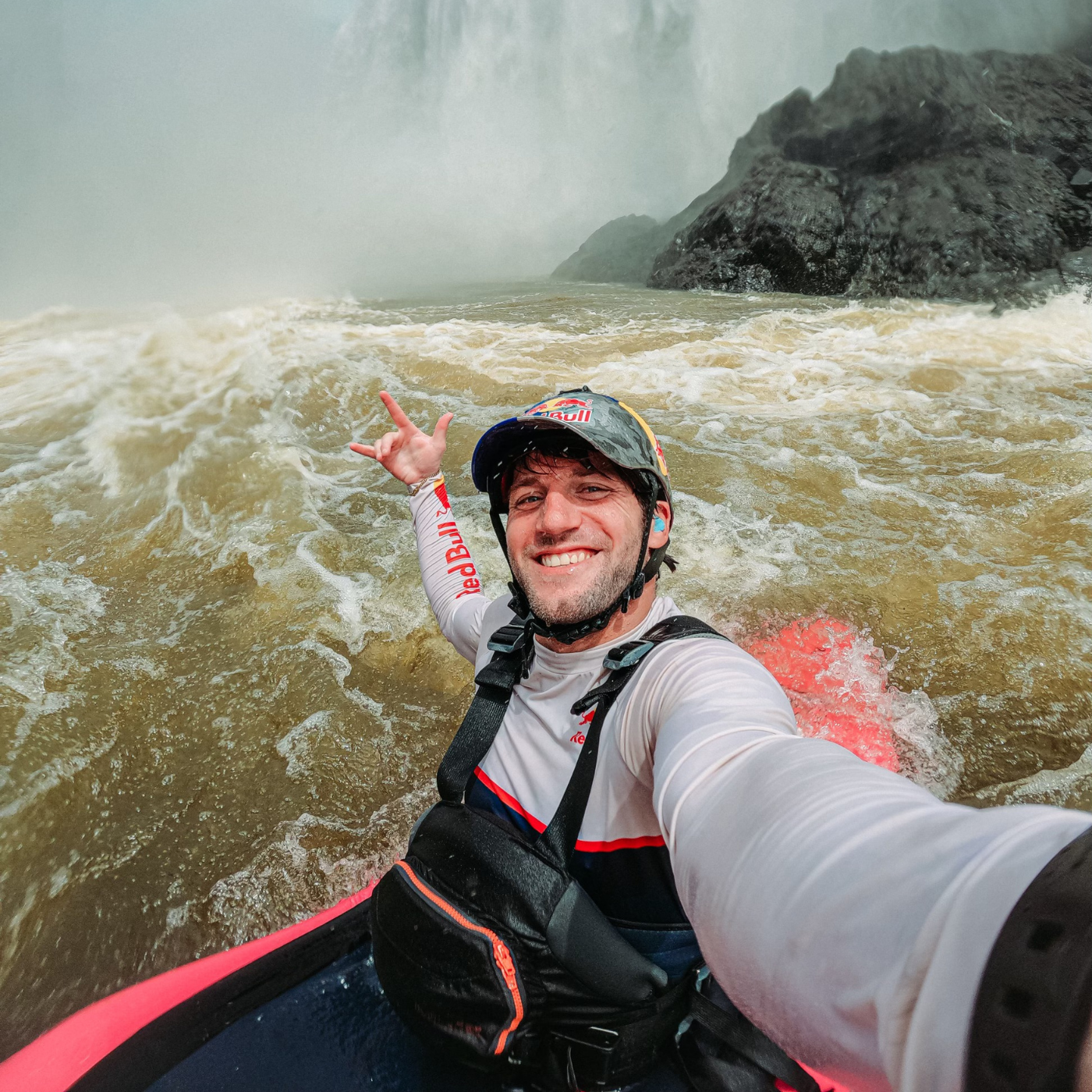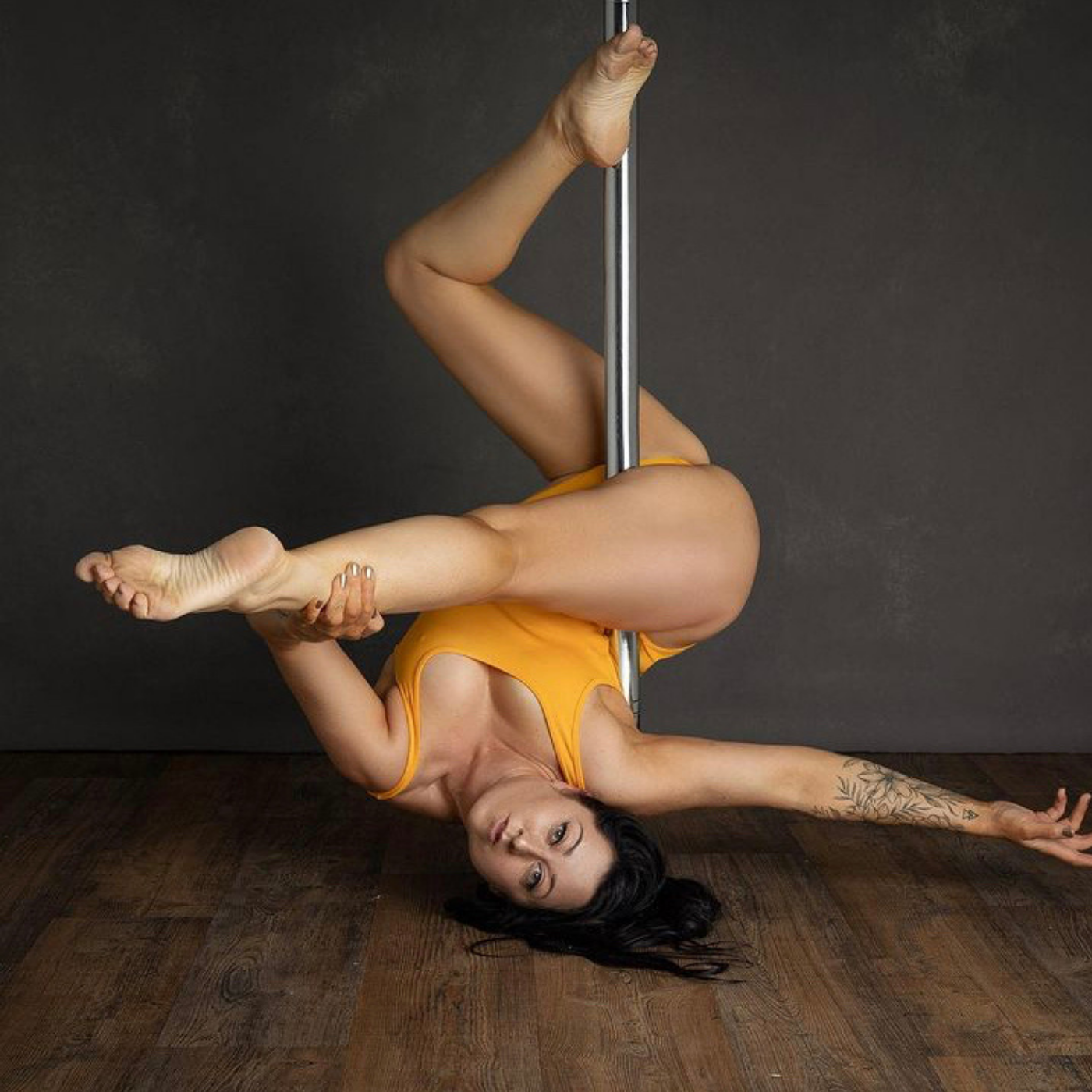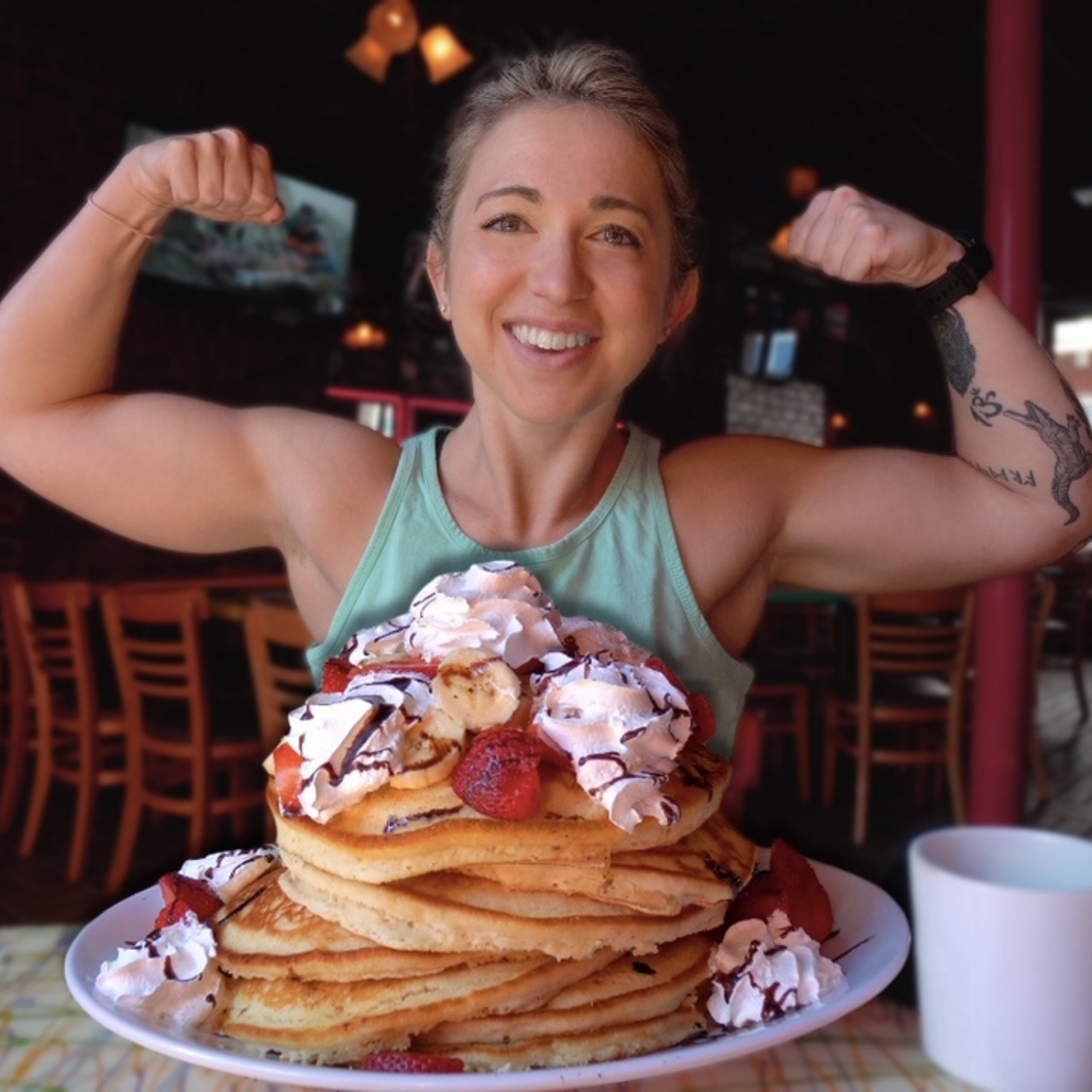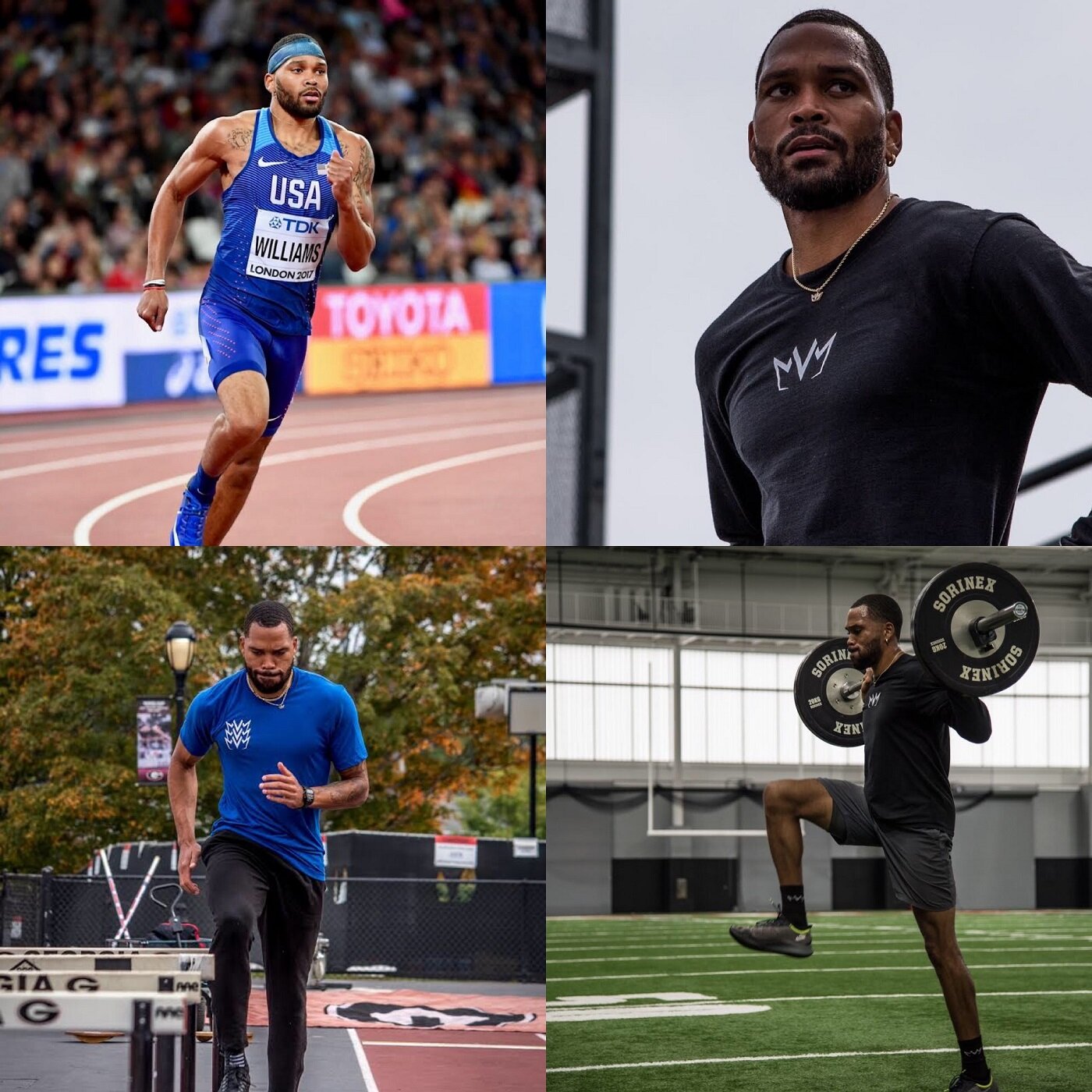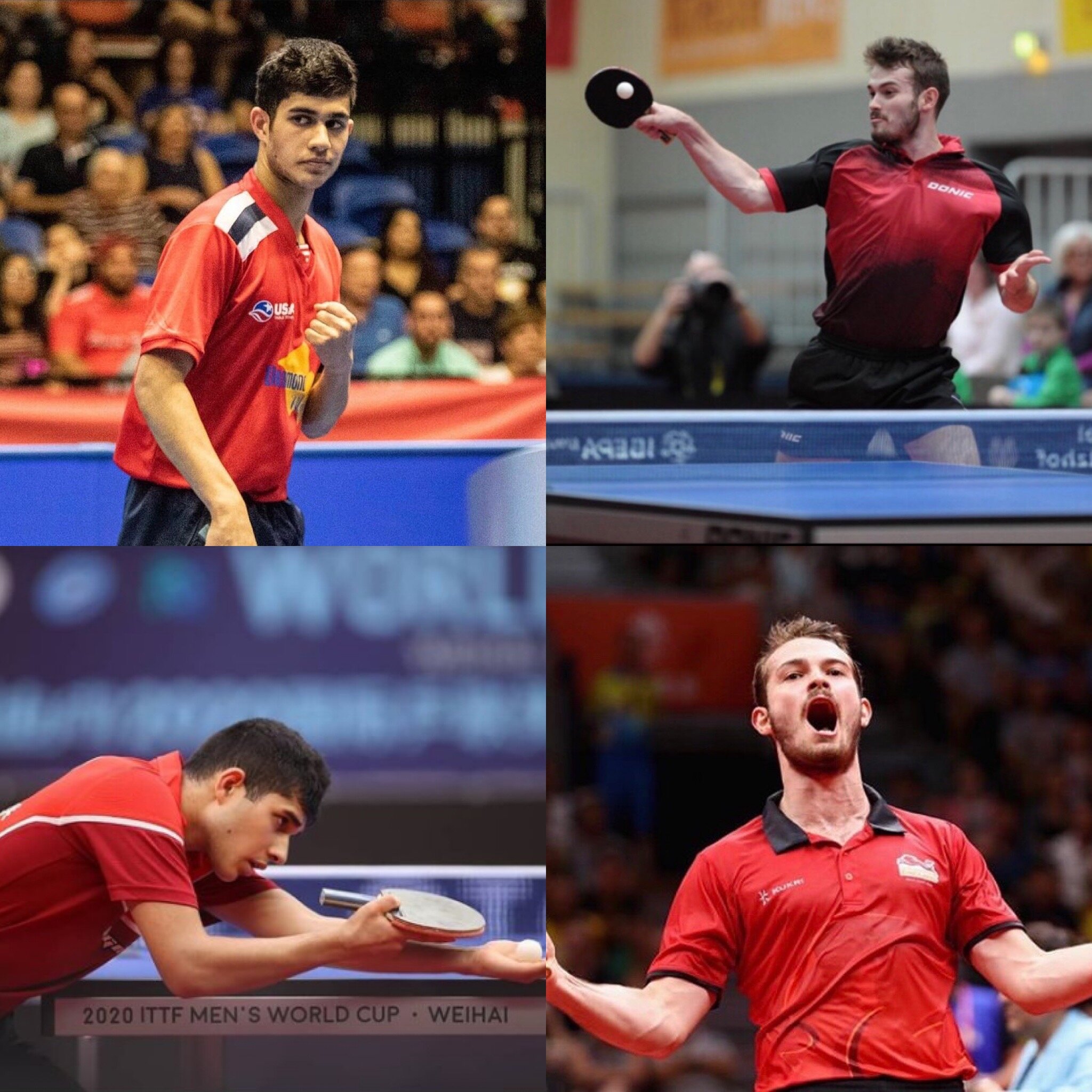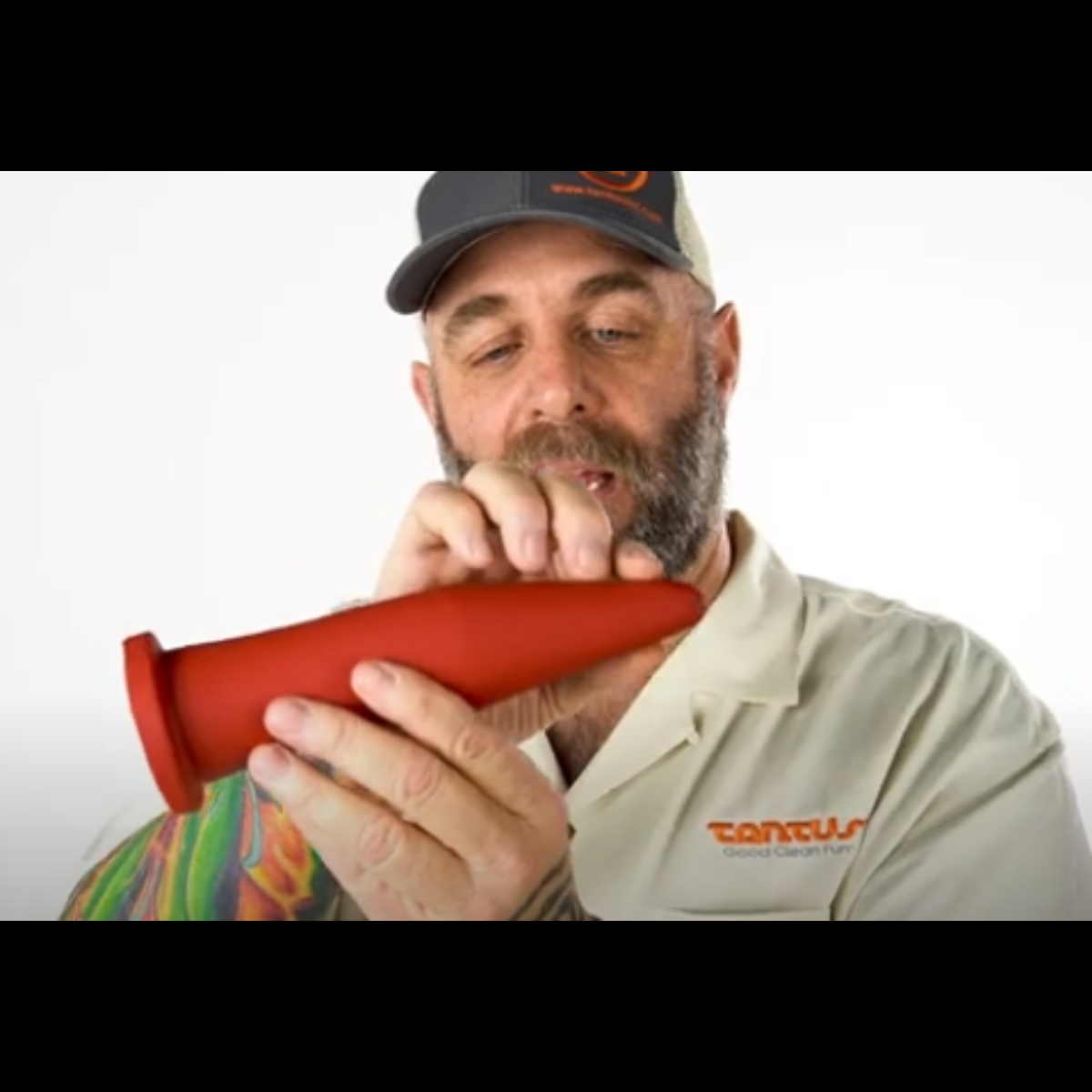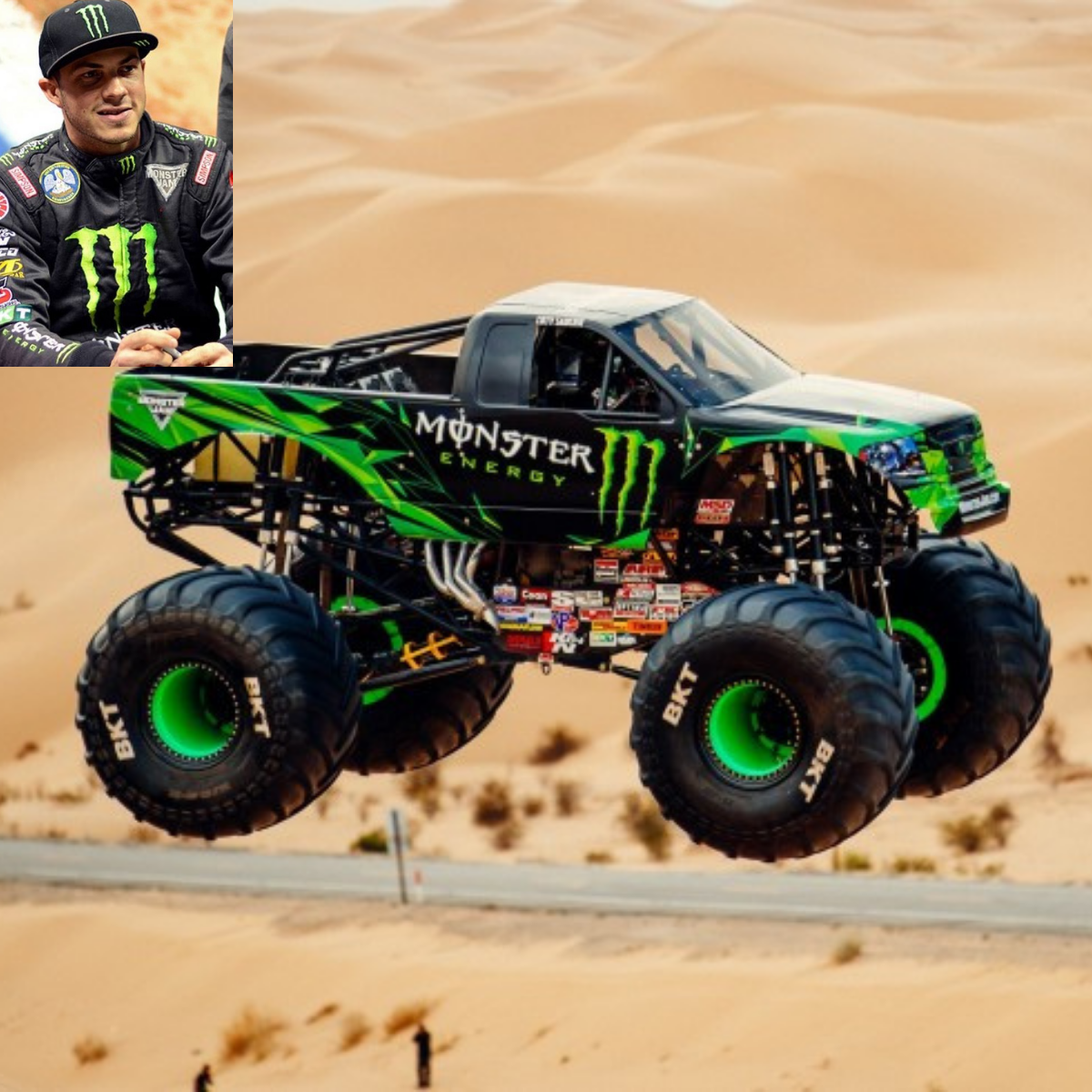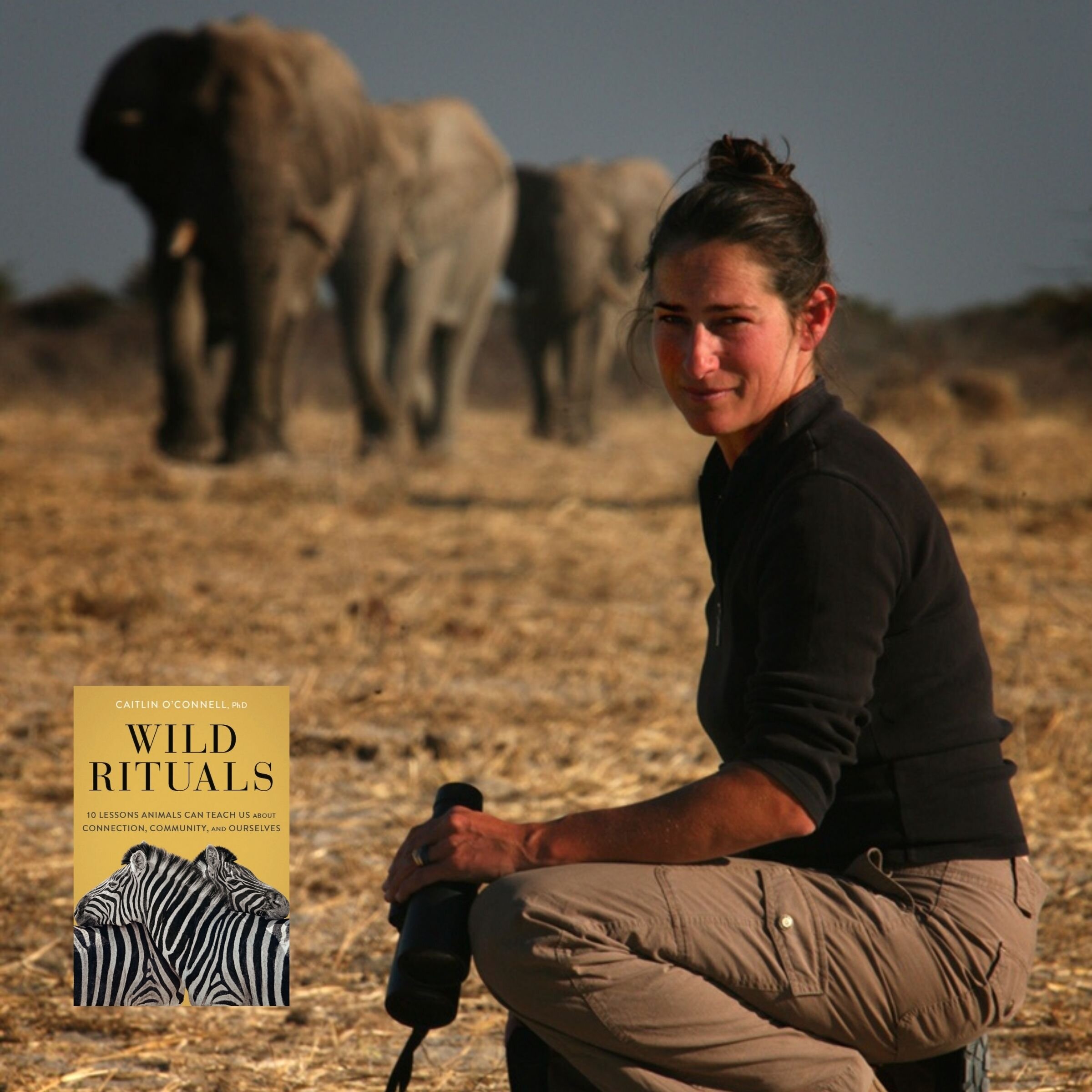For Kitty Malone wearing latex is both a transformation and a mystery. As soon as she puts it on she feels sexy, powerful and confidant, while her clients can only wonder what’s underneath her skintight clothes and hood. We talk wearing latex, normalizing fetishes, interesting requests and more. Then, we countdown the Top 5 Things We’d Like To Be a Model For.
Latex Kitty Malone: 01:40ish
Pointless: 38:29ish
Top 5: 50:59ish
https://twitter.com/latexkittyxxx (Latex Kitty Malone Twitter)
http://latexkittyxxx.com (Latex Kitty Malone Website)
https://www.instagram.com/latexkitty_ (Latex Kitty Malone Instagram)
Interview with Latex Model Kitty Malone
Nick VinZant 0:10
Hey everybody, welcome to Profoundly Pointless. My name is Nick VinZant. Coming up in this episode latex and modeling,
Kitty Malone 0:19
the way it makes you feel, it makes you feel really sexy, powerful, confident, horny. I think a lot of men, when they wear latex, they might want to do the makeup and the lipstick and the high heels and the big boobs and they want to transform themselves. And that's the greatest thing about latex, it's you can transform yourself into someone completely different. So when I put my head down on my latex, and some guys wants, you know, SBH small penis humiliation, I'm up for that, man. I'm like, that is a fucking small debt, blah, blah, blah, what am I gonna do with that, whereas in real life, I just be polite,
Nick VinZant 0:59
I want to thank you so much for joining us, if you get a chance, like, download, subscribe, share, we really appreciate it really helps us out. So our first guest is a professional model and an industry that is both very popular and very secretive. There's a good chance that somebody you know, is interested in latex and rubber. But despite how popular it is, there's still this idea that it's weird. That's a stigma that our first guest is trying to fight back against. This is latex model, Kitty Malone. So how did you get started in this? Were you a model who got into latex? Or did you like latex and then get into modeling
Kitty Malone 1:47
No, so it was a boyfriend. So I always loved cosplays or dressing up being somebody else a bit of an alter ego, especially in the bedroom. And then a boyfriend was into latex while an ex boyfriend was into latex. And I really wasn't into it at all. I just thought, I don't know the material or whatever. And he gave me a rubber 55 latex hood and just said put it on try it. So I did I put it on. And I thought wow, this makes me look completely different. Like I don't even recognize myself. This is very sexy. I loved the feel. I liked being somebody else and how it made me look like somebody else. So yeah, it all started with a hood. And then little bits of latex started coming in, you know, I started shopping for latex buying more latex, and then just dressing in latex, you know, at home in the bedroom, and then decided, well, could I make a thing of this? And I did.
Nick VinZant 2:56
So what is it about it that makes you enjoy it is a sexual thing I'm assuming, right?
Kitty Malone 3:04
Yeah, it's like I said before, it's the way it makes you feel it makes you feel really sexy, powerful, confident, horny. Just the whole getting ready for the putting on the makeup because the hoods are so pretty, but I think that it really emphasizes on your eyes and your lips. So I do spend time making my you know doing my makeup so that the hood brings out the eyes and then just getting dressed into the latex and then the finished product is all shiny and you just feel awesome it's just the feel the smell the way it looks everything so what will people generally have sex in the latex or is this more of something that you do before? No no in the latex so I mean I couldn't speak for men but I think they find it as well when you put it on it's the feel the smell how it feels against your skin how it feels against certain areas makes you feel horny everything that you well more or less everything that you buy in latex has got zips in the you know the important areas. So yeah, latex is for having sex in and some people get confused with that. They're like, do you really have sex in it? And you're like, of course you do. You swear you get hot you get you know, it's like the the feeling of it. It's it's just brilliant. Now is this is this a popular thing? are more people into it this than I would think I'd say it's more popular than you'd think for men. Not so much girls. So a lot of men ask me, How do I get my girlfriend into it? And there are a lot of men that wear it and want their girlfriends to wear it and they enjoy wearing it. But their girlfriends don't like them wearing it. But with regards to poppy It is very popular, but it's more of a not spoken thing. Like you don't go down the pub with your mates and say, Yeah, I love wearing latex. They go, what are your freak? It's kind of like that. Not a lot of people would admit to liking latex. But I think that a lot of people do love well would like to or try it or haven't tried it or Yeah, I think it's popular.
Nick VinZant 5:26
Why do you think that is, though, that it's a popular thing, but yet people don't want to talk about it.
Kitty Malone 5:31
Yeah, because it's like the GIMP look for men. Uh, you know, I think that a lot of men that were a very submissive, a lot of my clients want to be my slave. They want to be a gimpy so. So it's obviously their submissive side. And you know that when you speak about latex, it is like, all that's a bit weird or is weird. You know, a lot of my family and friends know what I do. And they know I wear latex, but they don't discuss it. It's just something that they just don't want to discuss, because it's weird. It's BDSM it's bondage. But it doesn't necessarily have to be BDSM bondage is just a fetish. Just like people would have a foot fetish or a nylon fetish, or, you know, any fetish. It's just latex, but I think it's just people view it as weird. But what's great is that a lot of you know, famous models are starting to wear latex. You know, Kim Kardashian is wearing latex, Lady Gaga is wearing latex. So but that's in a fashion sense, rather than a sexual, you know, sexual thought pleasure fetish kind of thing.
Nick VinZant 6:45
Now does do other kinds of fetishes and kinks go along with wearing latex or is it pretty much just?
Kitty Malone 6:51
Yeah, I think that if you wear latex, you're involved in the fetish scene. So a lot of people have different fetishes. And they, you know, I can I do Skype bookings, custom videos. And the requests I get are obviously for their fetish. So it could be nylon, it could be butt plugs, or, you know, they want to do that they want to do it. With me giving instructions. I think that it's just everything goes with latex, every fetish goes with latex, I think a lot of men, when they wear latex, they want to dress as a rubber doll. So they might want to do the makeup and the lipstick, and the high heels and the big boobs, and they want to transform themselves into a rubber doll. And that's the greatest thing about latex, it's you can transform yourself into someone completely different. So a lot of guys transform themselves into a rubber doll. And you wouldn't even know that if they were a guy or a girl. And that's the best thing about latex.
Nick VinZant 7:55
Is there a difference between latex and rubber?
Kitty Malone 7:59
I think that with regards to rubber. A lot of people use the word rubber when they're talking about latex, like I use the word rubber. But I think that it's more sexier, like I'm going to put my rubber on rather than latex. Because obviously, with regards to what I do, it's sexy, and I haven't you know, so when I say I'm going to put my rubber on it's it's sexier. But rubber is really rubber products as molded products, like the dildos rather than latex is a sheet of material.
Nick VinZant 8:32
Is it expensive, it would be expensive,
Kitty Malone 8:35
very expensive. I mean, you can buy cheap latex outfits from China. Whereas obviously you can buy lots of cheap stuff from China, but it's just crap. It's just it rips, it doesn't sit well. So if you're buying latex, the price will probably represent the the quality of the garment. So you're paying for say one of my hoods that I have. They're about 100 pounds per hood. The ones that have the ponytails or the pigtails, you're talking 120 if they're tailored and designed, it could go up to sort of 130 pounds per hood. And I have roughly around 30 to 40 hoods.
Nick VinZant 9:21
Oh my gosh.
Kitty Malone 9:23
And yeah, a cat suit. You're talking sort of 300 to 350 pounds. I have around 10 cat suits, then there's corsets heels, you know, latex, brows and cardigans and dresses, not cardigans, you can edit that out because you don't get coated with anything tight fitting, you know anything that's rubber is you know of good quality is going to cost a lot of money. I've just bought a course there. And I think that costs me about 400 pounds.
Nick VinZant 9:58
Wow and for for a year. Audience a pound is roughly double that you have an American dollar. So we're talking like 800 bucks. Yeah, but more than that, probably but man, whoa, yeah, that is expensive. Now do you have to? Does it has to be is that because it has to be custom? Because it's so tightened and like everybody's body is a little bit different? Or can I go to like the the latex store and get a medium?
Kitty Malone 10:23
Now it's all the same pricing, depending on the size, it's just I guess, latex is expensive.
Nick VinZant 10:31
So how did you know when did you make the choice to become to do this professionally?
Kitty Malone 10:35
What I've always been like quite sexual, and Randy and like quite a show off, I guess, as in like, hair, I don't mind going on camera and showing off and doing all of this kind of stuff. So I started coming through adult work. And just going on, on my days off logging in, in my latex. And I guess there's not many latex girls doing that. When I started. There certainly wasn't there was lots of girls that would slip into their lingerie and they would come You know, whereas I was more of a fetish model. So I used to be work was really busy because people hadn't seen this. So they were like, Oh my god, this is something different. Very fetish, very naughty. And then I got a lot of men on that wanted to be slaves and subs and do naughty things. And I was their mistress. And they wanted instructions. So I became very busy doing that. And I was working full time, and then got made redundant and thought, Well, I'm going to start doing this full time. I wonder if it can work. Got a website, social media, obviously get your following up. And that's how it all started to be honest. You get followers, you get regular clients, then it's private Skype calls. And then
Nick VinZant 11:57
yeah, it went from there. Like what do you get? Do when you do a custom video or one of these Skype calls? Like what is the person? Is it usually a man who's requesting this? Or is it usually a woman who's requesting this? Oh, man. Oh, man. Pretty much all men. Yeah. What like what do they usually want?
Kitty Malone 12:15
Well, most of its goi, so jerk off instructions me telling them how to jerk off. And then they get to request outfits. So they'll say can you wear this particular hood? Can you wear this particular outfit? Can you maybe do a nurse scenario? Can you do but it's more or less? You know, the porn industry, I think because now it's free. You don't need to pay, you can just jump on Pornhub search whatever you want. And there it is. I think that the way the porn industry is going now is that you can you can get really up close and personal to your favorite models. With regards to only fans, you can chat to them. Whereas you never used to be able to do that. You can request a video and say can you say my name and it's person personalized to them? So I'm saying hi, john, how are you? You know, this is your video, your personal video and I'm going to get really dirty for you. And you're going to take out your cock and you're going to do this and you know, it's only a 30 minute video but instead of going on Pornhub and searching I'm literally you're literally talking to me it's like right now I'm talking to them kind of thing instructing them. I think that's the way the world's going with custom videos.
Nick VinZant 13:33
How do you feel about that? Right? Because now this is kind of maybe before you were doing it in front of a camera and there's kind of like, but now it's a real person like you're doing this for someone does that does How do you feel about like that? Do you like that? More? Do you like that? Less? Like what do you think about the idea that now you're doing this for john smith? Yeah,
Kitty Malone 13:56
I love doing personal videos because you know, some of them send me a script so I have to not read from a script but obviously they will do scenarios positions they want me to get into and I will literally be talking to them rather than the videos that you know that I'm posting on my only fans is is just a ray of light naughtiness, I guess or you know, new outfit new hood. In my latex. I do a lot of smoking fetish videos. I love doing them this you know, I used to, like I said to I started off with coming on Adult work. Now I don't get the time to do that. Because all my business or my work is doing these custom videos for everybody that they're so popular. I'm just so busy with them. And it's nice because I can take my time recording. I can have fun. They then get a great finished edited video from latex kitty that they can keep forever. Obviously they can't share it, put it on any websites and make money for it because it's got their name all over it. Um, but I love doing them absolutely love doing them. When you're doing this kind of all the time does that then does that take away from your personal life in
Nick VinZant 15:08
the sense that like, you know, anytime I think once something becomes a job, it becomes less enjoyable outside of that. Right? Like, do you still? Is this something you still participate in your personal time?
Kitty Malone 15:20
Yeah, yeah. I mean, I do it during the day. And sometimes, obviously, if I've done quite a lot of custom videos, or if I've had a few Skype calls, and they've been intense, then yeah, I'm like, you know, don't want to worry, I sometimes need a week off or, you know, a few days off to just sort of get away from the latex. But I'd say, even when I walk past the room that I store my latex in, and I get the smell, I'm like, Oh, that smells good. And I love cleaning it and washing it and making it look good. So I never seem to get tired of it. To be honest, I do get exhausted with you know, with the messages and the constant chat that I you know that with regards to emails and stuff that I get, but that's fine. That's all part of the job, when you'd have that in a full time job, right? You'd have emails and stuff and inquiries coming in. But with regards to my loyal fans, I love chatting to them. And I think they love it that they can reach out to me and I, you know, I say to them, a guy a couple of weeks ago was going through a bad time, you know, I'm here to chat if you need someone to chat to just, you know, reach out to me, I don't mind chatting. So it's more of a like a personal thing as well, rather than, you know, I can't be there for everybody, obviously, but my loyal fans that you know, that have stuck with me since the beginning eight years ago, I've become really good friends with them.
Nick VinZant 16:45
Will you ever do things in person?
Kitty Malone 16:47
Well, yeah, lots of people would obviously love me to do things in person in real time, and meats and things like that. And I did do that, but I found it. They get too attached. You know, and it then becomes I just didn't like that I'd rather keep it sort of virtual, where I'm home and in, you know, safe. To be honest, I don't want to put myself out there to people that think because I wear latex, they can then meet me tie me up with me and spit on me. And, you know, whatever. I mean, one day, I might do that, but it would be as distressed rather than as, you know, people just fucking me kind of thing. And, you know, a lot of people do want real time Mr. Sessions, so maybe one day I will explore that area and go around fucking other people as in fucking men than rather than fucking me.
Nick VinZant 17:43
That seems like the natural evolution, right, in a way, doesn't it? Well, I say I just progressed to that. Right?
Kitty Malone 17:50
Yeah. I'd say 99.9% of my clients are all slots and just want to be fucked. They don't want to fuck me. They just want me to fuck them. And I think that's the way we're going. And I think that men shouldn't be ashamed of that. It doesn't necessarily mean they're gay, bisexual, whatever. It just means they want to have fun. They want to, you know, have some of what we're having. And why not? Oh, is
Nick VinZant 18:13
it good to ask you? Oh, like one of those custom clips? Like, how much would you generally charge for a custom clip?
Kitty Malone 18:18
Well, I'm obviously going to speak in pounds. So then you can like, yeah, so it's 65 pounds? For a 13 minute video.
Nick VinZant 18:27
It's about 120 bucks. I feel like that's low. Is that low? I don't know. I thought it would be more expensive than that. For some reason. Maybe. Because the latex is so expensive, expensive.
Kitty Malone 18:39
Yeah, but I think you'd pay more if I think people would pay more if it was me with somebody else. So if I was fucking somebody else, but because I'm so low, and you know, it's more or less, just me. It's 65 pounds. Someone else said to me, that's a bit cheap. So maybe I should put my prices up. But, you know, I don't want to like scare people off. And yeah, I'm busy at the moment. It's working at the moment. But 65 pounds obviously I have the latex, it's a big outlay when you're buying outfits, obviously. But then when you have it, it's a collection. And then yeah, it's but it is time consuming. You know, you film it, you edit it. You've got to get ready. You've got to get set up. You've got to but it's fun. So yeah, maybe next year I'll look at maybe putting my prices up but i do i do i too. The prices do vary depending on what people want. Like
Nick VinZant 19:33
how long it is and stuff.
Kitty Malone 19:35
Yeah, how long they might want it double you know, for example, smoking video, they want me just make seven cigarettes or something and then I'm going to put in the price of the cigarettes. I'm not going to be buying the cigarettes and having that come out of my budget. And then you know, if someone wants me to pump my pussy till its massive enjoy. Well, that takes an hour. So I'm going to put that in there because I'm not doing that in my own time while I'm doing my housework, walking around with a pussy pump attached dinner.
Nick VinZant 19:58
You know Will you just wear latex around the house just randomly? Yeah. You ever go well, people go outside and like just walk around?
Kitty Malone 20:08
Well, we go to events and people walk around at events and sort of, you know, London fetish weekend and stuff. But I live in a place where I really wouldn't want to go out in latech. Because I think I'd get too much attention. Like, if I went for dinner, I'd wear a pair of latex leggings with a pair of heels, for example, and you wouldn't get looked at because it's just leggings. Obviously, the hood, I wouldn't wear the hood out, because that would be a bit freaky, you know, freakish for people to look at. But yeah, latex leggings, or, you know, if you're doing a photoshoot in public, I don't see that there's a problem in wearing full latex. I personally like head to toe in rubber. I like the full cat suit, the forehead, no skin, use your imagination, you're completely enclosed. And I think that's really hot.
Nick VinZant 20:59
I think the thing that would stop me from doing it is just like, it feels like it would be hot and uncomfortable.
Kitty Malone 21:05
Nice. Not a lot of people, you can buy latex, which is chlorinated, so it's basically easy to put on. And it doesn't sort of stick to your skin and it's more comfortable. But I don't chlorinate my latex. So I use a dressing aid. And then I wear the latex, it sticks to me. But it's not uncomfortable. You'd be surprised how comfortable it is, once you put it on now once you put on your for latex, and maybe you then add a corset, and then you add a collar, and then you add maybe your heels and a hood, maybe two hoods that can become really restricted. But that's the fun of it. It's been restrictive. It's sweating in it, it's being uncomfortable. You know, and that's what I didn't get, obviously, when I first got into latex when that, you know, my ex boyfriend got me into it, I thought well, isn't it going to be uncomfortable? And then I tried it. And if you get a good quality cat suit, that's, you know, nice and comfortable, nice and thin. It's brilliant. It feels fabulous.
Nick VinZant 22:15
How much different is his latex kitty? From your, from your, from your personality? Do you feel like you go through a transformation? Are you pretty much just accentuating a side of yourself?
Kitty Malone 22:29
Yeah, when I put the hood on and the latex, I think I become a completely different person to what I am every day. Totally. Like, yeah, it's completely different. I think I even speak differently when I'm latex kitties or when I'm my normal self, but then I think people do when they're on cam or recording videos or, you know, we obviously you do the job does your does your voice change to everyday life to when you're interviewing or I try
Nick VinZant 22:59
to sound smarter, but I don't think it actually works very well. I tried to sound like a little deeper. But pretty much I feel like I just come off. No, not not so much. But then I've done it so long that honestly I don't even notice anymore. Which one would you say though is your? So I'm a big comic book fan. This may make sense to know what he may make sense to everybody. But there's this argument about like, well, who's the real person? Is Batman? The real personality of Bruce Wayne? Or is Bruce Wayne? The real personality? Like which one would you say do you think is your real personality latex? Kitty? Are you in everyday life?
Kitty Malone 23:39
Um, I mean, like I said, I think that I would 100% say that I changed when I'm in the latex and everything. But it is a bit of me. Like I said, I've always been a bit of a I wouldn't say slapped. I'd say I've always enjoyed sex. So therefore, for example, when I'm even chatting to someone that you know, I get cigarettes delivered to me that I shouldn't probably you probably couldn't say this, but whatever. I even flirt with everyone, you know, I'm a flirt. I'm a bit of a you know, a tease. I've always been a bit of a tease. So even when I'm chatting to a guy or you know, it's in a restaurant or in a pub is I'm always been a bit of a flirt a bit of a you know, chatty, flirty, which is kitty completely. So yeah, I'd say half and half.
Nick VinZant 24:27
That's about that makes sense. I understand that
Kitty Malone 24:30
looks wise completely different. Whereas personality still filled the slot I can be a filthy slot in real life, you know, even when I'm out in the pub as myself. So yeah, but when I you know, go on cam and I've got a guy who wants to be humiliated and stuff, I can be a bitch and that, you know, the latex brings out the bitchy me whereas in real life, I probably wouldn't be able to do that. So when I put my head down on my latex and some guys wants, you know, SBH small penis humiliation And I'm up for that, man. I'm like, that is a fucking small deck bla bla bla, what am I gonna do with that, whereas in real life, I just be polite Brits are polite, we are polite people, but I just couldn't be horrible to anybody. And it's taken time for me to get used to be in horrible to people when I'm latex kitty because it feels it felt really uncomfortable. But now it's what they want. I get that they want to be humiliated. They want to be called a piece to share. You know, so I'm down with that, but only as kitty not as myself.
Nick VinZant 25:33
Are you ready for some harder slash listener submitted questions? Okay. Favorite color of latex?
Kitty Malone 25:43
Definitely black. I think it's gonna be the same for most people. It's sexier, it's like, like stockings or black. You know, it's just black is a sexy color. And it's shiny. And so when you've got four black latex on and it's it's shiny, it's it just looks awesome. So yeah, Black is definitely my favorite color.
Nick VinZant 26:09
What's your least favorite?
Kitty Malone 26:12
I'd say green, like a really like green. I just don't understand green like mint green. I love nurse green. I love but I just have never really fancied green.
Nick VinZant 26:24
I can see green being like strange. Pink. Yeah, for some reason. I feel like pink would be a weird color. Oh, I like pink, pink.
Kitty Malone 26:34
Pink rubber dough. It's kind of cute. I have sort of some fuchsia pink and some baby pink. It's a bit like when you go out and buy clothes. You think girls would wear a pink dress girls would wear a sexy black dress, or not necessarily would wear a green dress?
Nick VinZant 26:52
Is there a difference for people who like somebody might distinction or whatever word that you want to use? Like for somebody who maybe just wears the latex bodysuit and doesn't wear the hood? versus somebody who wears the hood only?
Kitty Malone 27:04
Yeah, I wouldn't just wear a herd only I think that you have to I think you could wear it you could wear a cat suit only and have a you know a pretty head sitting on a cat suit. But I don't think just a herd. I'm not sure I think you could because the hoods the the rubber doll Look, you're looking at somebody else. So why not just cover the rest of your body? Why just cover your face?
Nick VinZant 27:27
Most common misconception about latex?
Kitty Malone 27:30
Yeah, that it's weird that it's like, you know a lot of my family and friends know what I do. But like I said, they don't talk about it because it's weird. It's underground. It's a fetish. It's like, not spoken about, you know, like I said, my friends know what I do. They just don't like to. They just think I'm weird for wearing it. And I don't know why. I don't understand why it's got that persona of being weird.
Nick VinZant 27:56
What would you say to somebody though, that they want to explore this? Maybe they want to explore this with their partner. And their partner just doesn't want to do this. What would you say to somebody who wants to get into this? But feels like they can't?
Kitty Malone 28:10
Yeah, that's a good question. Because a lot of my followers a lot of my clients are the same it's it's a one sided thing, whereas he wants to get into it but the wife doesn't to the extent where it's she thinks it's weird. And never force it upon a girl You know, like never say you have to wear it or you know, it's slowly introducing it. I think that everyone has the right to have a fetish and it just doesn't need to be seen as weird I think that if a man had a you know, an a nylon once you know to see a sexy go on a pair of nylons, then that's fine, but if he wants to see her in a sexy pair of latex leggings, it's not fine. And I just think that that's just bizarre. It's the fetish. It shouldn't be the underworld anymore. It should be. It's a sexy garment. And I wish that every girl could just experience latex the way I do and how sexy it makes you feel without thinking it's weird. And I was one of those girls I did think it was weird. I was like that strange. Just you need to be open about it and just try stuff new. I think that you know if any girl would just try it you either hate it or love it. Maybe it's like Marmite you hate it or love it. I don't know if you have that saying in in the US you either love it or hate it. And you will and I loved it. And I think that a lot of girls if they tried it, they would love it. And there's a lot of girls on Instagram that wear it and modeler and they get so many likes and comments and then they then create an account and they get so much attention because they text is becoming huge. It's so sexy and they love the comments and the loves right? Other than the latex itself, which is fine. You know, it's like modeling anything. If you feel sexy, new, you're getting the love, you're gonna, you know, you're gonna love it. But secretly, you can't wait to get it off and just get into your comfy pajamas. But with me, I love that.
Nick VinZant 30:13
Have you had some clients that have that have run into issues with like, you know, you're you're the only person that I can talk to about this? Yeah.
Kitty Malone 30:23
Yeah, so 50% of my clients, they come with me, or they get customs from me because their wives, their girlfriends are not into it. And they need a release. So they need that time where they can wear their latex, and they have someone to share it with. They can't go to events because you know, the wife doesn't let them or the girlfriend doesn't let them. Whereas I'm not their girlfriend. But I'm there for them to talk about the experience and come with them whilst they're wearing it. I don't want to be their girlfriend. They don't want me to be their girlfriend. They just want to enjoy latex with another person who enjoys latex, I guess
Nick VinZant 31:03
for maybe for a perspective, like what is something that you would look at? And think oh, that's weird.
Kitty Malone 31:09
See, then I don't I don't think anything is weird, because I'm open to everything that anybody wants to explore. That makes them happy. I'm like, that's your thing. Because this is my thing. And I get like, it's not a conversation. You know, I could have with my mother. Oh, I'm a cam girl. Oh, that's nice. But I wear this and this is a picture of me in a hurt should go. What is just I don't understand why though. Why should you think that that's any different to being a girl that comes in my knickers and bra. In fact, I'm wearing more clothes than a girl with knickers and bra. But people love the full coverage. I get more people asking for custom videos of me completely covered than I do get custom videos of with my tits out and everything which can you just wear a latex bikini? Everyone? Everyone wants the latex? But yeah, in the normal world, it's
Nick VinZant 32:06
just weird. That kind of makes sense to me actually. Right? Because it's kind of like because it's so tight. You're revealing your body but also keeping it a secret at the same time. Of course,
Kitty Malone 32:17
it's use your imagination to what's underneath.
Nick VinZant 32:21
I get that aspect of it, why people would request more you have more requests fully clothed
Kitty Malone 32:27
it I love it that when I wear the herd, I get a lot of a lot of requests saying can you just take the hood off? And it's not because it's all because they want to see what I look like. That's the main thing. And that's what I love. I love them not knowing what I look like. And then for example, when I do post a picture without my head, they're like, You're so pretty. You shouldn't wear a head you're pretty without your hair. And I'm like, that's not why I'm wearing a hurt. I'm not wearing a head to disguise a scar on my ugliness. It's because it's the fetish. It's the not knowing. So that's why I wear it. I'm not wearing it because I'm ashamed of my face. It's my fetish, but a lot of people think it is. And then you know, my only fans page, I put loads of pictures out on my only fans page without my hood. And then I get Oh, can you do a custom video without your head? No, because that's not why I did this. This is not why I started this because I don't then feel like kitsy
Nick VinZant 33:25
your most common request your most interesting requests that you've gotten?
Kitty Malone 33:32
Well the most comments requests that I get from fans and followers is can I be your slave so they want to 100% submit to me and be my slave which is very difficult because I'm virtual I'm just online so that makes it difficult. But yeah, a lot of people want to to worship me but requests wise is all about being a mistress and that's really when I started this you know I'm a very sexual person I wanted to submit to people and be fucked by a rubber guy that's dressed in rubber and big shoe you know big sort of like army boots kind of thing and be treated like a piece of cake kind of thing. But then when I turned it into work, I thought no because you have to have trust in someone to be able to fully submit and I'm not going to be trusting anybody to go on calm and them saying to me do this do that. So I kind of went down the mistress route and I loved it. So I am more Mr. Se and I just love the requests I get like I was saying earlier about humiliation. Jao why a bit of teasing. I want everybody to worship Me and you know, that's the main bulk of my business is the mistress. Smoking. Because when you put the latex on and when you see a powerful a sexy woman in latex even myself when I see a sexy woman in latex like automatically think powerful, strong. I have been asked to do a custom video of me and latex hoovering which I found really weird because I love hoovering. Don't get me wrong I love my house being clean but that was weird.
Nick VinZant 35:25
Is hoovering is that I don't know what that means that cumin that Oh, okay, yeah we call it hoovering. I've never heard of that sexual term.
Kitty Malone 35:35
I mean, I've been asked to suck before but sucking up dirt is like with a vacuum is really was like, Oh, that was weird. Like,
Nick VinZant 35:43
I don't want this to sound like I'm judging it but like, well, I don't, I guess I don't understand. Right. Like I understand the idea of being fully clothed in latex versus being not fully clothed. I guess I don't understand what would be the attraction of the vacuum.
Kitty Malone 36:02
itself. And yeah, and I wasn't prepared to do that one because it just I don't know. You can't just say yes to everything right. You have to say what? How can I do that? Do
Nick VinZant 36:15
you remember? Was it like a specific kind of vacuum? No, it was a regular.
Kitty Malone 36:21
Yeah, I just couldn't you vacuum in latex on it, and I could have done my health work at the same time. And yeah, that's
Nick VinZant 36:30
kind of sounds like you missed out on some easy money. Honestly,
Kitty Malone 36:33
it wasn't even in a maid's outfit. I mean, I have latex maids outfits that you know, that's fine if you want me to be a latex maid and
Nick VinZant 36:41
um, okay, so I don't have a sense of smell. So this is this might not make sense to me. But like, what, what what's the best smelling kind of latex? Does
Kitty Malone 36:49
it all smell the same? Oh, smells the same. Yeah, like I keep mine in a in a clothes wardrobe. And when you walk apart, my house smells of rubber. So obviously people that come here to my house, and they can always smell rubber. Another thing is my floors. I've got wooden floorboards in my house. So when you put latex on I use a dressing aid, which is kind of like an oily lube. And if that goes on to the floor, it becomes very slippy. So my floors are always slippy, and I have a dog and bless her. She's always slipping on my floors, because she's trying to run away and then she slips. And I'm like, it's like having oil on your floor constantly. So yeah, it's the smell. My house always smells rubber, latex.
Nick VinZant 37:33
This is the last one we got. How do you feel about Catwoman?
Kitty Malone 37:37
Catwoman wasn't Isn't she like the how kind of latex started and for cats the show, right?
Nick VinZant 37:46
Yeah, that was, I would imagine that most people's first kind of introduction to it.
Kitty Malone 37:51
Yeah, I haven't heard with cat kitty years cat is, you know, full black latex suit, full black hood with kitty is, but plug as a tail, and massive big platform shoes and your cat woman. And to go with that, obviously, you need a big whip. And yeah, that's that's what latex is.


